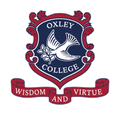Senior School

I have always been interested in numbers. Some subjects at school were quite challenging, but Mathematics was both beautiful and comfortable for me. Searching for patterns in the times tables was a joy as a primary school student. I loved the power of graphs in representing data during secondary school, and I continued to explore Mathematics long after university, studying various patterns appearing frequently in the natural world.
Statistics has become increasingly popular in the last few decades. We often see numerical analysis presented as if factual in the media, especially in advertising. You may have heard the well-known quip, 84% of all statistics are made up – or thereabouts. Watching the news or advertising, where a plethora of data is presented frequently without any indication of source, size of population, or error commentary, it is possible to conclude that this percentage is understated.
This idea was triggered by the recent Australian Bureau of Statistics 2021 Census. It was fascinating to think about the questions and to contemplate, assuming people generally respond as accurately as they can, how the Census this year might be distorted. Of particular consideration were the religion and workplace questions.
Social commentary on religion and Question 6 abound (the only optional question on the Census). Many comments focus on No Religion being the first option, therefore potentially skewing the figures as the donkey vote comes into play. My personal involvement with several denominations throughout my life created difficulty in determining which box was most appropriate and eventually I wrote Christian as my religion. Certainly, Wikipedia reports the 2016 Census revealed 52.1% of respondents identified as Christian, with a breakdown of denominations such as Anglican, Baptist, etc. I would view all of these as part of Christ’s Church, each with their nuances, but preaching the same central message of Christ’s love for us.
Question 49 was also curious; How did the person get to work on Tuesday 10 August, 2021. I suspect that during Lockdown 6.0, many more people worked from home, than on the same date in 2016, and a lot more people are working from home currently, than we hope to be the case next year. It will be interesting to see the data derived from this question, its value in Victoria and New South Wales, and how its validity is viewed. The ABS website states the Census in general will provide valuable insights into how the pandemic has changed life in Australia. As a snapshot it may be helpful, but there are limitations in the data collected.
At my secondary school, as part of Computer Awareness, we briefly studied the 19th Century USA Census changes in approach. The 1880 Census took seven years to hand count and, therefore, Herman Hollerith was contracted to expedite the process. He developed an electric tabulating machine to count data. In 1890, Hollerith introduced punched cards to process, reduce cycle time and provide a level of data granularity never seen before. Hollerith’s Tabulating Machine Company changed its name in 1924 to International Business Machines Corporation, now known as IBM.
Sunday school taught me about a different Census during the reign of Caesar Augustus, counting people presumably for the purposes of taxation. In Luke 2:5-6, we encounter Joseph travelling to Bethlehem to be registered with Mary, his betrothed, who was with child. And while they were there, the time came for her to give birth.
My recollection of the 2016 Census is fleeting, but I suspect many of us will remember where we were on Census Night in 2021, for a long time to come, and why it was different to others. I wonder how many people involved in Caesar Augustus’ Census would have recollected the event 20 years later? Certainly, we now know it as a pivotal event in time, including a miraculous virgin birth that changed the world, and our lives if we choose to believe, forever.
Luke 2:11
Today in the town of David a Saviour has been born to you; He is the Messiah, the Lord.
Greg Barker
Deputy Principal – Head of Senior School
